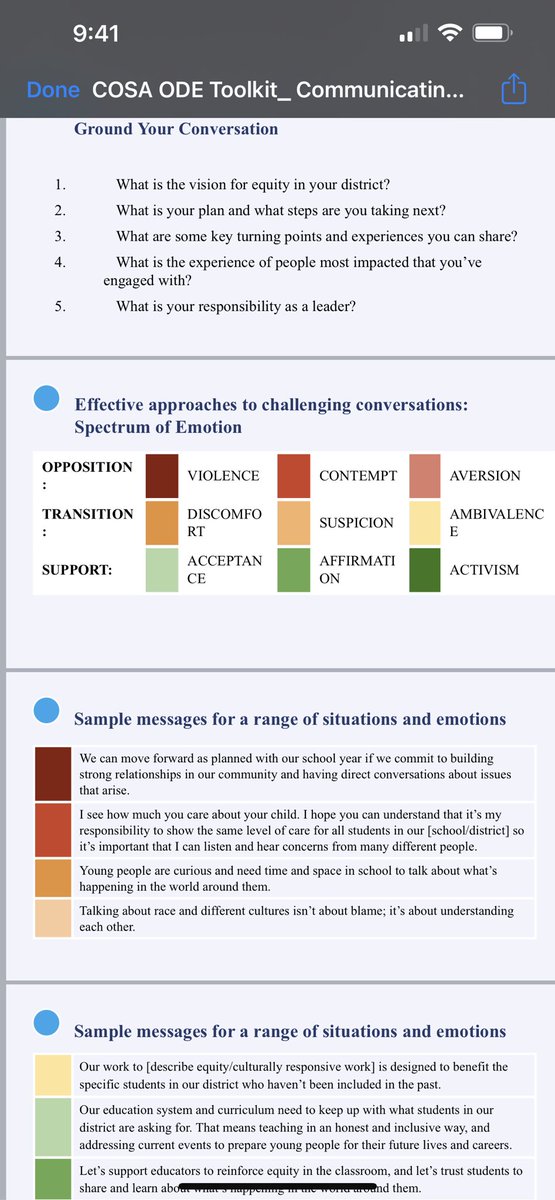
This official document is from the Oregon Department of Education:“Communicating about Racial Equity in a Charged Environment”
It teaches educators how to speak about CRT and racial equity.
Here are a few things to think about as you read it…



It teaches educators how to speak about CRT and racial equity.
Here are a few things to think about as you read it…




1) The entire document is rooted in equity and how to speak to people about equity, yet equity is not defined.
Moreover, it’s assumed that equity is an intrinsic good, and offers no argument or evidence for equity-based education.
Moreover, it’s assumed that equity is an intrinsic good, and offers no argument or evidence for equity-based education.
2) Notice the stance toward CRT.
It tells educators *how* to deal with objections, but there’s nothing substantive in the responses. It suggests a listening stance (with platitudes) devoid of argument or engaging meaningful objections.
It tells educators *how* to deal with objections, but there’s nothing substantive in the responses. It suggests a listening stance (with platitudes) devoid of argument or engaging meaningful objections.
Since the Oregon Department of Education did not define equity, I will.
The bottom line is that equity is not evidence-based. It is a fairly recent moral value that’s part of a larger ideology.
The bottom line is that equity is not evidence-based. It is a fairly recent moral value that’s part of a larger ideology.
• • •
Missing some Tweet in this thread? You can try to
force a refresh








